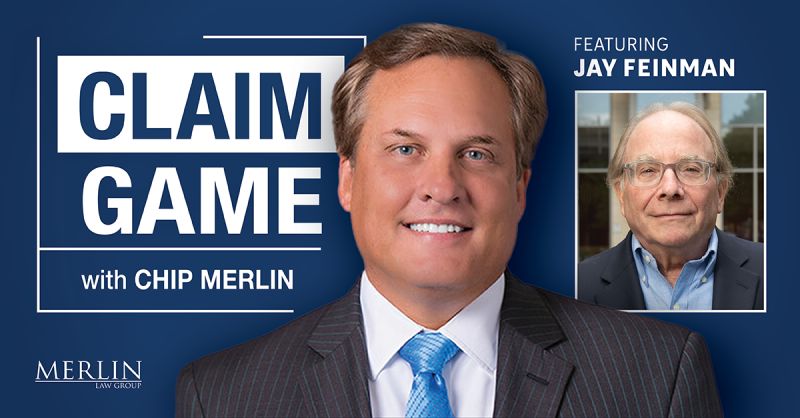Throughout my current Declare Recreation interview with Distinguished Professor of Legislation Jay Feinman, I used to be struck by a second of critique, which I solely absolutely appreciated after re-watching the interview. We had been discussing the failures of insurance coverage regulation, particularly with regards to unfair claims practices. Feinman made a pointed statement.
He warned that it’s not simply corruption we needs to be anxious about. As an alternative, it’s affect. Not affect within the sense of overt lobbying or backroom offers however in the best way regulators come to see the world by means of the eyes of the very business they’re meant to police.
Feinman known as it out plainly. Regulators, he stated, are formed by the folks they converse to most frequently. These persons are not policyholders or shopper advocates. They’re insurance coverage firm executives, compliance officers, actuaries, and commerce affiliation lobbyists. This shut, day-to-day interplay inevitably narrows a regulator’s perspective. Over time, it shifts their body of reference. “It’s not nearly bribery,” Feinman advised me. “It’s about who offers them with knowledge, reviews, and every day contact. It’s the insurance coverage firms that form their worldview.”
Such a affect has a reputation within the tutorial world. It’s known as cultural or cognitive seize. It differs from extra acquainted types of regulatory seize, like monetary conflicts or revolving-door employment preparations, though it typically accompanies them.
“Cultural seize” happens when regulators internalize the norms, assumptions, and priorities of the business. It’s delicate, insidious, and extremely exhausting to uproot. It may be the explanation why regulators overlook systemic abuses in claims dealing with, why market conduct research give attention to trivial technicalities as an alternative of significant patterns of hurt, and why proposed reforms stall underneath the guise of complexity or feasibility.
The Nationwide Affiliation of Insurance coverage Commissioners (NAIC) is a very illustrative instance. Whereas many imagine it to be a governmental company, it’s, the truth is, a non-public 501(c)(3) nonprofit funded and ruled by state insurance coverage commissioners. These commissioners typically have prior careers within the insurance coverage business, and lots of return to it after their public service ends. NAIC workers are incessantly drawn from the identical pool of business consultants they purport to supervise.
This revolving door doesn’t simply blur the traces between regulator and controlled. As an alternative, it erases them. I beforehand mentioned this revolving door in a lot better element in The Revolving Door Connecting Insurance coverage Regulators with the Supposedly Regulated Insurance coverage Trade.
Educational critiques have lengthy flagged the NAIC as a structurally susceptible establishment. Thomas Leonardi, former Connecticut Insurance coverage Commissioner, brazenly criticized the NAIC’s governance, saying inside management “hijacked” unbiased oversight processes to keep away from transparency. Others have noticed that the NAIC’s mannequin regulation course of typically displays business priorities, with minimal public enter and nearly no binding shopper safety mandates. Nonetheless, the NAIC’s suggestions and fashions carry important weight in almost each state’s insurance coverage regulatory framework. It’s a paradox {that a} non-public group guided by individuals who could also be extra aware of insurer spreadsheets than policyholder ache units public coverage and advised legal guidelines.
Feinman’s concern is just not tutorial nitpicking. It’s a warning drawn from many years of analysis, case evaluation, and publicity to real-world penalties. When regulators undertake the vocabulary and logic of insurers, they start to excuse unreasonable conduct as acceptable deviation. They justify delayed or denied claims as a part of the actuarial course of. They fail to ask why a system persistently fails the folks it was meant to guard. They continue to be blind to patterns that, in another setting, can be grounds for sanction with requires reform.
Feinman reminded viewers that insurance coverage is not only a product. As an alternative, it’s a social promise. He said that he absolutely helps the idea and wish for insurance coverage as a result of it’s the mechanism by which society allocates threat, loss, and restoration. But, when that mechanism is overseen by officers who’ve been unconsciously co-opted into the business’s worldview, the promise breaks. Policyholders endure as a result of these charged with the enforcement of legal guidelines and selling shopper protections not absolutely see the violations as mistaken.
To repair this, I recommend we should first identify it. “Cultural seize” is just not as seen as a bribe or a scandal, however its penalties are simply as actual. It lives within the questions regulators fail to ask, within the mannequin legal guidelines that by no means get written, and within the research that miss the forest for the timber. Jay Feinman supplied a quiet however agency problem in our dialog. We have to demand extra, not simply from insurance coverage firms, however from the system that oversees them.
We should name for transparency on the NAIC. We should demand that insurance coverage commissioners interact way more incessantly with shopper teams, not simply company boards and insurance coverage executives at insurance coverage conferences. We should advocate for structural separation between regulators and people they regulate. We should demand better outreach by insurance coverage regulators to the general public with out regulators being apologists or spokespersons for the business. There should be rigorous public accountability and transparency in regards to the interactions between insurance coverage regulators and people they regulate.
We should additionally inform the reality. The insurance coverage regulatory system is not going to serve the general public till it stops being formed by the insurance coverage business’s picture of what it needs to be.
I’ll have extra on this intriguing dialogue with Jay Feinman in tomorrow’s publish. Here’s a hyperlink to the Declare Recreation interview.
Thought For The Day
“If you wish to put Chip Merlin out of enterprise, simply pay all legitimate claims. That’ll do it.”
—Jay Feinman, throughout Declare Recreation interview >

